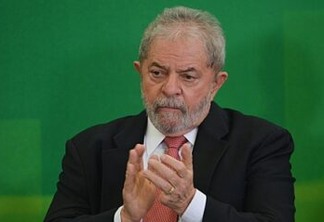The Brazilian Federal Supreme Court (STF) resumes, this Wednesday (24), the judgment that will define whether it is constitutional to criminalize someone for possessing drugs for personal use in Brazil. For this reason, with the motto “Legaliza Tudo STF” (“Legalize Everything Supreme Court” in free translation), the Marijuana March of São Paulo convened an act on the same day, at 6:30 pm at the Art Museum of São Paulo (MASP), located at Av. Paulista. With flyers and a public lecture, this Wednesday’s protest is a “warm up” for the big annual march, say organizers, which is scheduled for the next 17th of June.
The subject began to be judged by the Supreme Court in 2015, by an appeal presented by the Public Defender of São Paulo, after a man was condemned to do two months of community service for having been caught with three grams of marijuana inside his cell, at the Diadema Provisional Detention Center.
According to the Public Defender’s Office, the current legislation violates the principles of intimacy and private life. What is argued is that article 28 of the Brazilian Drug Law (nº 11.343/2006), which provides penalties for those who carry substances for personal consumption, is unconstitutional, since, in addition to violating the right to self-determination, it would be a crime whose only “victim” is the person who commits it. Before then Minister Teori Zavascki asked for more time to analyze the matter, paralyzing the trial for eight years, three magistrates had already voted.
Minister Gilmar Mendes, rapporteur of the case, argued that carrying drugs for personal use should no longer be a crime. Ministers Luís Roberto Barroso and Edson Fachin, on the other hand, were in favor of decriminalizing possession only for cannabis, a position considered a “legal absurdity” by members of Marijuana March SP.
“We are going to the streets to defend not the decriminalization of marijuana, as some ministers want, but the legalization of all drugs, the end of the war and the beginning of freedom”, says Júlio Delmanto, an activist from the Marijuana March SP.
The plenary almost resumed the trial in 2019, but after meetings between the then president of the Supreme Court, Dias Toffoli, and the Bolsonaro government, mediated by the notorious prohibitionist Osmar Terra, the topic was removed from the agenda. Scheduled to resume this Wednesday (24), the next to cast the vote will be Minister Alexandre de Moraes, who replaced Zavascki on the Court after his death in a plane crash in 2017.
“The State cannot treat adults like children”
The legal thesis under debate, summarizes attorney Cristiano Maronna, a member of the Legal Network for Drug Policy Reform (Rede Reforma), “is that the State cannot treat adults like children. This is unacceptable criminal paternalism.”
Evaluating that there is little prospect of changes in the Drug Law by the National Congress and the Executive Branch, Maronna, who is also on the board of the Justa research project, believes that “the only opportunity that opens up at the moment is this, for the Supreme Court to declare the unconstitutionality of article 28”.
“Due to the tightening of the relationship between powers during the Bolsonaro government”, he analyzes, “there is a portion of the Supreme Court that thinks this issue should be dealt with by the Congress, a portion that thinks that the Court should not advance on this issue, which is controversial and may displease people at a time when the country remains polarized”. In Maronna’s understanding, however, “it’s been eight years since the trial began and it needs to end”.
In the lawyer’s view, among the nebulous aspects in the current prohibitionist drug policy that the judgment should define are “the setting of objective criteria for differentiating between user and dealer, based on quantities and also on the requirement of proof of merchandise intention”. In other words, proposes Maronna, “that there could only be a conviction for trafficking if the intention to trade is proven, and that burden is on the prosecution, not on who is being defended”.
For movements, just decriminalizing the use does not resolve the issue
Delmanto explains that the act this Wednesday (24) is not intended to address the ministers of the Federal Supreme Court, “who already have their votes decided, most of the time only on political and moral grounds, not legal or scientific”. “The march wants to talk to the population, as it believes that social changes are what sustain legal and political changes.”
In addition, Marijuana March SP wants to “present its critical view of the decriminalization of drug possession, which does not contemplate us”, highlights. In calling for the act, the movement points out that “this vote does not solve the structural problems that the war on drugs causes to society, such as mass incarceration, police violence, stigma, difficulty in seeking care, violent trafficking, difficulty in research, corruption, etc., but we will not stop making noise”.
If the Supreme Court decides that possession of drugs for personal use will no longer be a crime in Brazil, says Júlio Delmanto, “we believe it will be a small advance in a context of paralysis of the Executive, Legislative and Judiciary Branches, which are colluding with the violence, racism and genocide of the poor and black population that are all caused by the prohibition and the war”.
Representatives of the State Front for the Release of Prisons in São Paulo (FED-SP), from the Ceiling, Work and Treatment project, which operates in Cracolândia, and from Rede Reforma will participate in the public class.
The act, says the organization, will also serve to call for this year’s Marijuana March SP which, on June 17, will have concentration from 2:20 pm. In 2022, the demonstration calling for the end of the war on drugs brought together around 80,000 people in the capital of São Paulo. This time the axis, making a parody of a Nação Zumbi song, is “Anti-prohibitionism as a matter of class, reparation out of necessity”.
Edited by: Thalita Pires e Flávia Chacon







